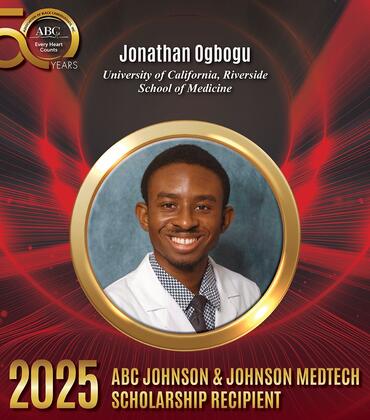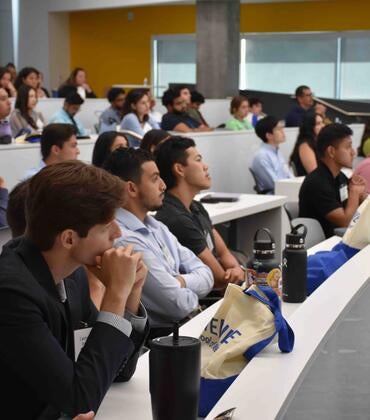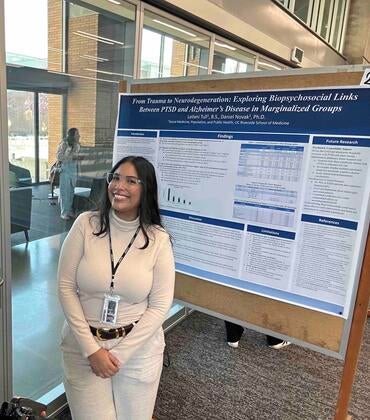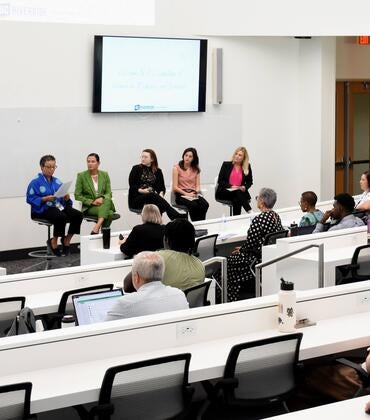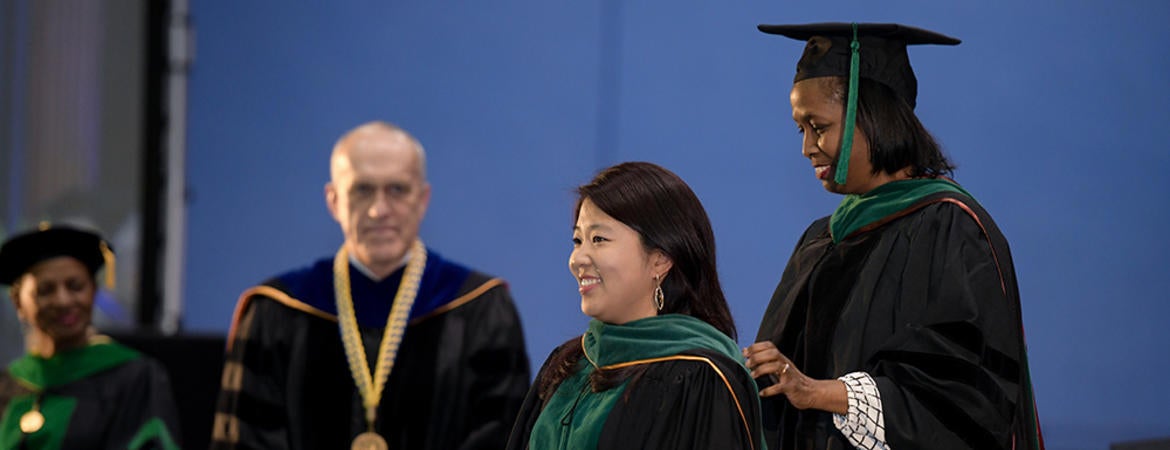
The University of California, Riverside School of Medicine has been named a founding member of the Building the Next Generation of Academic Physicians (BNGAP) National Center for Pre-Faculty Development. The center's mission is to help diverse medical students and residents become aware of academic medicine as a career option and to provide them with the resources to further explore and potentially embark on an academic medicine career.
"Traditionally, under-represented minorities have low participation and commitment to academic medicine," said Senior Associate Dean for Medical Education Brigham C. Willis, M.D. "They don't see people who look like them in these roles, or they might not get the encouragement from family or colleagues to get into it, so they never consider it. This center is intended to change that by giving students access to mentors and support that will help them get excited about academic medicine."
The School of Medicine is one of 17 schools and five organizations that make up the inaugural membership of the center, which will hold regular meetings, webinars, and conferences intended to foster exchange of ideas, curricula, and materials between all member schools.
"Our students, faculty and staff will have the ability to take advantage of a wide array of materials from our partner schools across the country," Willis said. "And we can share our experiences and resources with them."
Students at the School of Medicine are also organizing a student chapter of BNGAP and also can elect to participate in courses on leadership in academic medicine.
“BNGAP illuminates the path to academic medicine by facilitating mentorship, teaching scholarship, and developing leadership skills for a successful career,” said Associate Dean for Student Affairs Sunny Nakae, Ph.D. “UCR is committed to ensuring that the efforts to diversify medicine continue to the faculty pipeline so that the decision-makers and stakeholders of tomorrow can achieve inclusive excellence.”
"UCR BNGAP has the potential to be the promise of our school's mission incarnate," explained fourth-year medical student Niya Larios. "Through BNGAP, our medical students have the opportunity to build the future for academia that includes equity, transparency, diversity, inclusion, and the thoughtful engagement and support of minorities from pre-med to pre-faculty or clinician."
"It’s well established that exposure and mentorship helps students to visualize themselves in similar positions of just power and potency. We need mentors to inspire, guide, and speak frankly about the road to academia" she added. "Each one of us has distinct challenges based on our identities, orientations, and backgrounds.
"BNGAP not only provides an excellent opportunity for medical students to develop the skills necessary for a successful career in academic medicine, but it also serves as a route for us to advocate for underrepresented groups in medicine," agreed fourth-year medical student Anne Lyon. "My peers in the student leadership have the conviction, passion, and innovation to make meaningful changes in our community, and I am looking forward to working with the faculty counterparts who are equally committed. "
The center will host the Pre-Faculty Development Conference and White Paper De-Briefing on via webinar on September 25-26, 2020. The conference will bring together health professionals, educators, researchers and trainees to share and discuss activities and best practices to better prepare trainees to succeed in academic medicine.
BNGAP was conceived in 2008 in response to a need for expanded efforts to diversify academic medicine. Faculty members from the Hispanic Center of Excellence at the Albert Einstein College of Medicine worked with the Latino Medical Student Association (LMSA), the Student National Medical Association (SNMA) and the Association of American Medical Colleges (AAMC) to create a dedicated pipeline for underrepresented students interested in pursuing a career in academic medicine. While initially focused on Black and Latinx individuals, the initiative has grown to include a variety of underrepresented groups, including Native Americans, Asian, and LGBTQ individuals.
